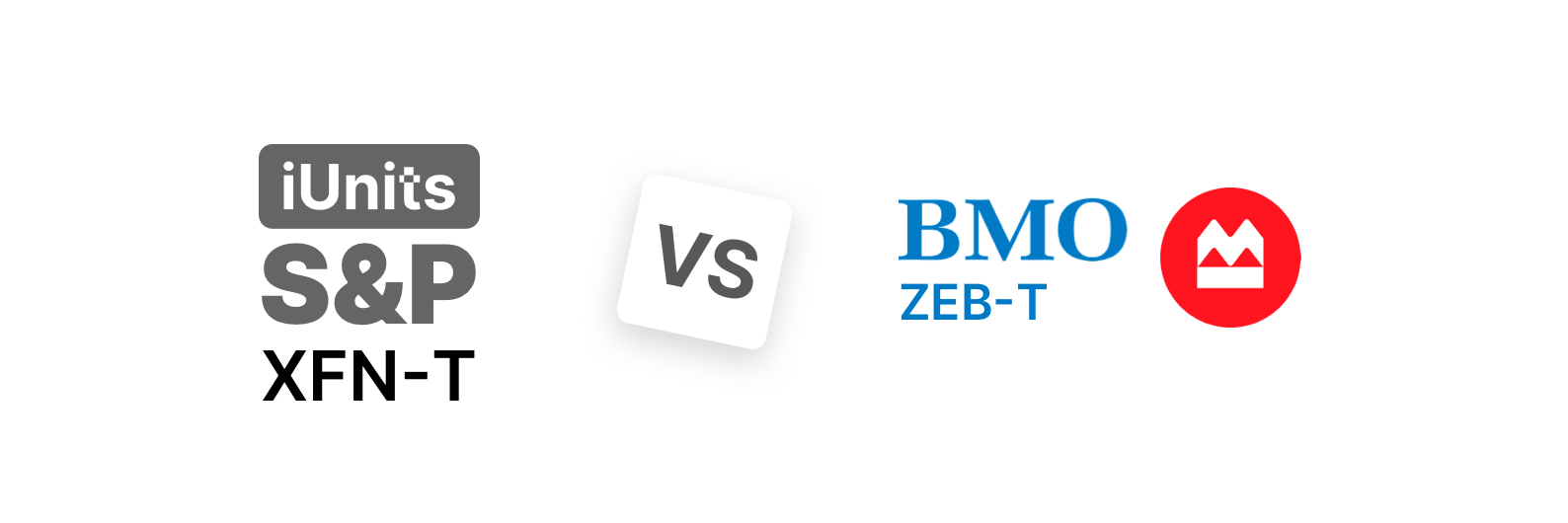Top 7 Canadian Bank Stocks that Pay Solid Dividends

Most Canadian Investors own at least one of the Canadian bank stocks. Most of the time, for the dividend. But which of the Canadian Bank stock should you own? These Top 7 Canadian Bank Stocks are good quality blue chip stocks and are undervalued right now. They have been paying dividends forever, and also offer above-average dividend yields. As interest rates go up, the stocks tend to appreciate.
Investing in Canadian bank stocks can be a smart move for investors looking for stable returns and consistent dividend payouts. In this article, we will explore why Canadian bank stocks are a good investment, which bank stock pays the highest dividend, and provide insights on the best Canadian bank ETF. Here are the best Canadian bank stocks to buy now.
Why invest in the best bank stocks?
Investing in Canadian bank stocks can offer several benefits. Firstly, Canadian banks are known for their stability and strong financial performance. They have proven to be resilient, even during times of economic uncertainty, which provides investors with a sense of security.
Additionally, they have a history of paying out dividends, making them an attractive option for income-focused investors. Furthermore, the Canadian banking industry is highly regulated, which helps to ensure the overall stability and reliability of the sector. Investing in Canadian bank stocks has been of interest to many investors over the years for several reasons.
These factors combined make Canadian bank stocks a compelling investment opportunity.
Let’s look deeper into why Canada’s Bank Stocks are so popular…
- Stability and Track Record: The Canadian banking system is often cited as one of the most stable in the world. In fact, during the 2008-2009 financial crisis, no Canadian banks failed or required bailouts, which speaks to the strength and resilience of the system.
- Oligopoly: Canada’s banking system is largely controlled by the “Big Five” banks (Royal Bank of Canada, Toronto-Dominion Bank, Bank of Nova Scotia, Bank of Montreal, and Canadian Imperial Bank of Commerce). This oligopoly limits competition and can result in higher profit margins.
- Dividends: Canadian banks are known for their robust dividend payouts, making them attractive for income-focused investors. They have a history of consistently paying and, in many cases, increasing their dividends over time.
- Diversification: Many Canadian banks have expanded their operations internationally, offering investors exposure to growth in other markets, especially in emerging markets such as those in Latin America and Asia.
- Regulation: Canadian banks are well-regulated. This oversight ensures that the banks maintain certain levels of capital and take on manageable levels of risk.
- Housing Market: While the Canadian housing market has been described by some as frothy, Canadian banks have generally maintained prudent lending standards. This prudence can act as a buffer against potential downturns.
- Diverse Service Offerings: Beyond traditional banking, Canadian banks offer a range of financial services, including wealth management, insurance, and capital markets operations, providing multiple streams of income.
- Relative Valuations: At various points in time, Canadian bank stocks have traded at attractive valuations relative to their historic averages and to their peers in other countries.
- Adoption of Technology: In recent years, Canadian banks have made significant strides in adopting new technologies, offering digital banking solutions, and improving efficiencies, which can drive future growth.
However, like all investments, there are risks associated with investing in Canadian bank stocks. For instance, if the Canadian housing market were to experience a significant downturn, it could impact bank profitability.
Likewise, global economic conditions, interest rate environments, and regulatory changes can all have effects on the performance of bank stocks. It’s essential to conduct thorough research to determine if Canadian bank stocks align with your investment goals and risk tolerance.
The Best Bank Stocks in Canada to Buy Today

Royal Bank of Canada (RY-T)
Royal Bank of Canada (RY-T) is one of the best Canadian bank stocks to consider buying now. As Canada’s largest bank, it has a strong market presence and offers a wide range of financial services. With a solid track record of earnings and dividend growth, RY-T has consistently rewarded its shareholders.
Furthermore, Royal Bank of Canada has a diverse business model, including operations in personal and commercial banking, wealth management, capital markets, and insurance. These factors make RY-T an attractive investment option for investors.
Toronto Dominion (TD-T)
Toronto Dominion (TD-T) is another top Canadian bank stock worth buying. TD is recognized for its strong customer focus and innovative banking solutions. The bank has a significant presence in both Canada and the United States, providing access to a broader market.
Toronto Dominion has consistently delivered solid earnings and dividend growth, making it an appealing option for investors seeking stability and long-term returns.
Bank of Nova Scotia (BNS-T)
Bank of Nova Scotia (BNS-T) is a leading Canadian bank with extensive international operations. The bank has a significant presence in Latin America and offers a unique opportunity for investors looking for exposure beyond the Canadian market.
Bank of Nova Scotia has a solid track record of dividend payments and has shown resilience, even during challenging economic conditions. Canadian investors seeking diversification and international growth potential may find BNS-T to be an attractive investment choice.
Bank of Montreal (BMO-T)
Bank of Montreal (BMO-T) is one of Canada’s oldest banks and has a well-established reputation. The bank offers a range of financial services, including personal and commercial banking, wealth management, and investment banking.
BMO has a consistent track record of earnings and dividend payments, making it a reliable option for income-focused investors. Additionally, its attractive dividend yield makes BMO an appealing choice for those seeking regular dividend income.
Canadian Imperial Bank of Commerce (CM-T)
Canadian Imperial Bank of Commerce (CM-T) is another top Canadian bank stock worth considering. With a focus on providing banking and financial services to individuals, businesses, and institutions, CIBC has a strong market presence in Canada.
The bank has a solid track record of earnings growth and dividend payments, which appeals to investors seeking stable returns. Furthermore, CIBC’s commitment to technological innovation positions it well for future growth and adaptation to changing customer needs.
National Bank of Canada (NA-T)
National Bank of Canada (NA-T) is a prominent bank in Quebec, offering a range of financial services to individuals and businesses. The bank has a strong regional presence and focuses on providing personalized solutions to its customers.
National Bank of Canada has consistently delivered strong financial results and dividend payments, making it an attractive option for investors seeking exposure to the Quebec market.
Laurentian Bank of Canada (LB-T)
Laurentian Bank of Canada (LB-T) is a smaller Canadian bank that primarily operates in Quebec. Through its local focus, the bank has cultivated a deep understanding of the specific dynamics that characterize Quebec’s economy and its diverse communities, allowing it to tailor its products and services accordingly.
Note that Laurentian Bank is currently undergoing a strategic analysis which experts believe might culminate in its sale, possibly reinforcing an emerging trend of mergers in the Canadian banking landscape.
Holding as potential M&A target not a good strategy.
Christine Poole on Stockchase
Not expecting a major premium if company sells.
Lorne Steinberg on Stockchase
Financial analysts and stock experts, especially on Stockchase, are currently expressing reservations about purchasing shares in Laurentian Bank. Their skepticism suggests they don’t expect an interesting premium if the bank sells and advising potential investors to exercise caution before adding it to their portfolios.
Laurentian Bank offers personal and commercial banking services, mortgage financing, and investment solutions. Although smaller in size compared to the other major Canadian banks, Laurentian Bank has a strong reputation and has shown resilience. Investors seeking exposure to a smaller bank with potential for growth may find LB-T to be an interesting choice.
Recent Ratings of Canadian Bank Stocks
When considering investing in Canadian bank stocks, it’s vital to stay informed about recent stock opinions and ratings. Financial analysts and rating agencies regularly provide insights into the performance and outlook of these stocks.
As of the latest reports on Stockchase, Canadian bank stocks have generally received positive ratings, indicating confidence in their financial health and growth prospects. Have a look below, you will find the latest stock opinion from each of the big banks.
What Canadian Bank Stock Pays the Highest Dividend?
The Canadian bank stock with the highest dividend yield as of now is Bank of Nova Scotia (BNS-T). However, it’s important to note that this can change over time as dividend yields are subject to various factors, including stock prices and dividend payout ratios. Investors should consider multiple factors such as a bank’s financial health, growth prospects, and historical dividend performance when evaluating dividend-paying bank stocks.
[TIME SENSITIVE] At 6.6%, Bank of Nova Scotia (BNS-T) currently (as of September 2023) pays the highest dividend among the Canadian Bank stocks. The yield is one of the primary metrics that investors look at, but it is not the only consideration. It’s always a good idea to look beyond just the current yield and consider the broader context when evaluating a dividend-paying stock. Dividend growth, payout ratio, earnings stability, and balance sheet health should also be considered.
What is the Best Canadian Bank ETF?
Is there an ETF for Canadian bank stocks?
Yes, there are several ETFs available that provide exposure to Canadian bank stocks.
One of the popular options is the BMO Equal Weight Banks Index ETF (ZEB-T), which includes all major Canadian banks. This ETF allows investors to gain diversification across the banking sector while minimizing specific stock risks. It is crucial to research and compare different ETFs to ensure they align with your investment goals, risk tolerance, and desired exposure to Canadian bank stocks.
For Canadian investors looking to gain exposure to a diversified portfolio of Canadian bank stocks, a the ZEB-T ETF can be an excellent option, yet there are alternatives.
Are there alternatives to ZEB-T?

As noted earlier, one of the best Canadian bank ETFs available is the BMO Equal Weight Banks Index ETF (ZEB-T). This ETF provides investors with exposure to all of the major Canadian banks, offering a well-rounded portfolio in the banking sector.
An alternative to ZEB-T is XFN-T, the iShares S&P/TSX Capped Financials Index which has exposure to major banks and insurance companies. This ETF holds banks and insurers but also Brookfield Asset Management (BAM.A), which is one of the most admired stocks on the TSX.
It should be noted that before investing in any ETF, it’s essential to assess the fund’s performance history, expense ratio, and underlying holdings to ensure it aligns with your investment goals and risk tolerance.
BMO Global Asset Management, a division of Bank of Montreal (BMO), has a noteworthy presence in the ETF (Exchange-Traded Fund) market, particularly in Canada. BM O’s ETFs division has made significant strides since its inception, offering a wide range of products tailored to different investment needs.
Is there a safer alternative to ZEB-T and XFN-T?
Another interesting option is BMO Covered Call Canadian Banks ETF (ZWB-T) which may lag the market, but will fall less if the market tumbles.
Is it time to buy Canadian bank stocks?
Canadian banks are generally considered a good buy for investors (read the Why Invest in Canadian Bank Stocks section). The stability and profitability of the Canadian banking sector, along with consistent dividend payments, make them an attractive option.
A recession often evokes fear and uncertainty in the financial markets, but for astute investors, it can also represent an opportunity. One such opportunity is buying bank stocks. Historically, recessions have impacted banks in various ways, from reducing interest margins to causing a spike in loan defaults. However, buying bank stocks during a recession can be a strategic move, if done with a clear understanding of the risks and potential rewards.
Factors such as the current economic climate, interest rate environment, and global market conditions should be considered. Additionally, investors should diversify their portfolio across different sectors and asset classes to manage risk effectively.
How safe is it to buy Canadian bank stocks?
Canadian bank stocks are considered relatively safe investments due to the stringent regulations governing the banking industry in Canada.
The country has a robust regulatory framework designed to maintain financial stability and protect investors. Canadian banks are required to maintain conservative lending practices and have sound risk management systems in place.
Additionally, the banks’ strong capital positions and consistent profitability contribute to their overall safety.
While no investment is entirely risk-free, Canadian bank stocks are generally regarded as stable and secure investments.
How to value Canadian bank stocks?
Valuing Canadian bank stocks involves considering various factors. One commonly used method is the price-to-earnings (P/E) ratio, which compares a bank’s stock price with its earnings per share. A lower P/E ratio suggests that a stock may be undervalued, while a higher P/E ratio implies it may be overvalued. Investors should also analyze other financial metrics such as return on equity (ROE), book value, and dividend payout ratios to assess a bank’s financial health and profitability. Additionally, staying informed about market trends, industry developments, and expert opinions can provide valuable insights when valuing Canadian bank stocks.
What are the 7 banking stocks?
The top 7 Canadian bank stocks to consider buying are Royal Bank of Canada (RY-T), Toronto Dominion (TD-T), Bank of Nova Scotia (BNS-T), Bank of Montreal (BMO-T), Canadian Imperial Bank of Commerce (CM-T), National Bank of Canada (NA-T) and Laurentian Bank of Canada (LB-T). To learn more about each of the major banks in Canada, scroll up to the Best Bank Stocks in Canada you Should Buy Now.
These banks are among the largest in Canada and have a solid track record of financial performance, dividend payments, and market presence. Investors should conduct thorough research and consider their investment goals and risk tolerance when selecting from these banking stocks.











